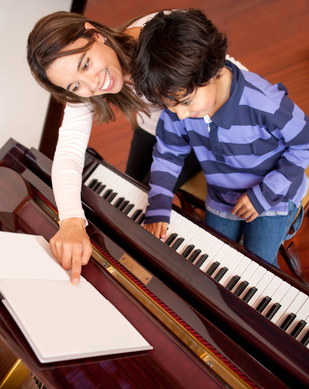You invest in piano lessons so you can play well. However, you do most of the work during your practice sessions. If you want to play piano better, you have to take your practice sessions seriously. Here are some key tips on how to maximize your piano practices.
Schedule Your Piano Practice
You know the old cliche, so if you don’t practice, practice, practice, you’ll never get better. Schedule your practice sessions and commit to them.
Use your Practice Time Wisely
While you might be eager to learn that new piece of music, don’t spend your entire practice session on it. Playing the piano is a beautiful, complex skill, so you want to pay attention to three key phases of practice in order to play your best:
- Play your scales.
- Improve your repertoire.
- Learn something new.
Pay attention to your technical skills by starting your practice session off with 10 minutes of scales or arpeggios. You’ll not only loosen up your hands and fingers, you’ll improve your overall technique.
Then select a piece already in your repertoire that could use some work or that you haven’t played in a long time. This will get you focused and keep your repertoire strong. If you can practice on a couple of pieces that are similar in style to a new piece you’re learning, that can be ideal to setting up the third phrase of your practice.
Now that you’ve laid down the foundation, you’re ready to spend some time on a new piece. Spend some time reading through the music before you play and take note of how you hear it in your head. You’ll learn the piece best if you take it slow and really spend time moving through the bars. The better you learn it, the more naturally you’ll be able to play it.
Physical Form Matters
You can improve your piano playing by giving due attention to a few physical issues. Each time you sit down at the piano, whether for piano lessons or practice, be mindful of:
- Your posture.
- Your hand and finger position.
- Your breathing.
If you’re lazy or careless with how you’re sitting, your play will also be careless and lazy. Make sure you’re sitting comfortably at the edge of the bench with your feet flat on the floor, if they’re not on the pedals. Keep your shoulders back and relaxed.
Keep your wrists and fingers high above your keyboard. Don’t let you wrists slouch down. One good trick is to imagine that you’re holding an orange in the palm of each hand as you play. This will keep your hands and fingers in the rounded position you want.
While you’re keeping your posture and hand position correct, this doesn’t mean being stiff. If you find yourself holding your breath, your body is likely too stiff as well. Maintain good body and hand position in a relaxed manner that allows for deep, controlled breath. When your body and breath are relaxed, you can play with greater energy and emotion.
This article was written on behalf of Merriam Music, Toronto’s quintessential school for private and group music lessons. For more information about their piano lessons, click here.

